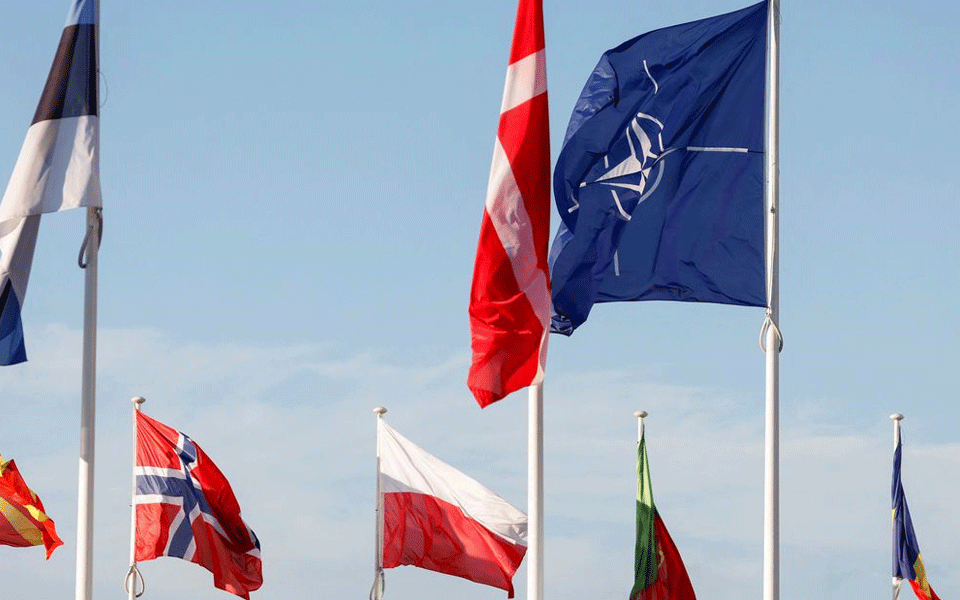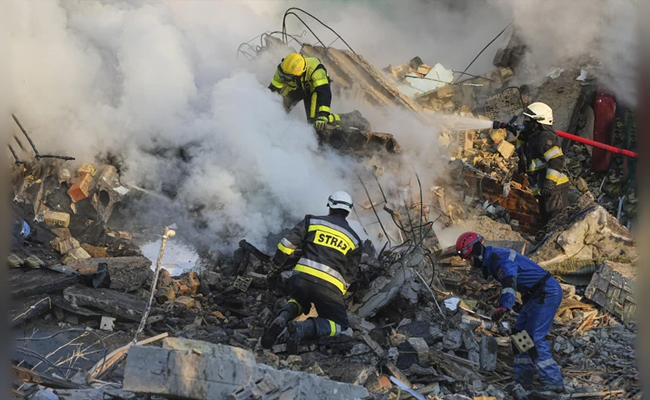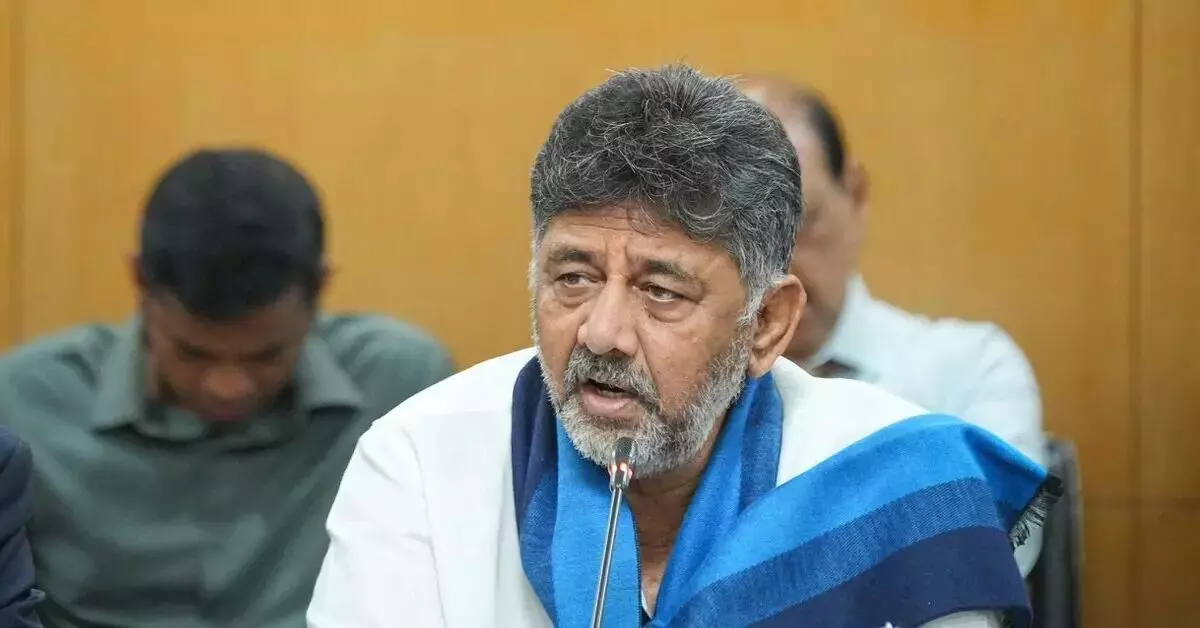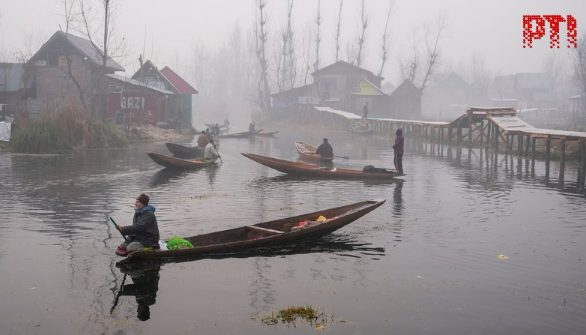Brussels (AP): Ambassadors from the 30 NATO nations gathered in Brussels Wednesday for emergency talks after Poland said that a Russian-made missile fell on its territory, killing two people, and US President Joe Biden and his allies promised support for the investigation into the incident.
The blast came as Russia launched widespread aerial strikes across Ukraine and immediately raised concern and confusion about whether Russia might be broadening the war it launched against Ukraine in February, potentially dragging NATO into the conflict.
But three US officials said preliminary assessments suggest the missile was fired by Ukrainian forces at an incoming Russian projectile, and Biden said it was "unlikely" that it was fired from Russia.
NATO chief spokeswoman Oana Lungescu described the blast as a "tragic incident."
Poland said late on Tuesday that it was considering calling for emergency consultations under Article 4 of NATO's founding treaty, which provides for such talks if one of the 30 allies considers that its territory might be under threat.
But Wednesday's meeting did not appear to be Article 4 consultations.
With key questions remaining unanswered, a firm statement of support for Ukraine and for the Polish investigation would appear the most likely outcome from Wednesday morning's meeting, echoing a joint statement overnight from NATO and G7 leaders.
"We offer our full support for and assistance with Poland's ongoing investigation. We agree to remain in close touch to determine appropriate next steps as the investigation proceeds," the leaders said, on the sidelines of G20 talks in Indonesia.
"We reaffirm our steadfast support for Ukraine and the Ukrainian people in the face of ongoing Russian aggression, as well as our continued readiness to hold Russia accountable for its brazen attacks on Ukrainian communities," they said.
Since President Vladimir Putin ordered Russian troops into Ukraine, NATO has sought to avoid being dragged into a wider war.
The world's biggest security alliance has declined to send troops into Ukraine and has refused Kyiv's requests to police a no-fly zone over its cities, which might require allies to shoot down Russian fighter jets or target air defense systems in Russian territory.
While some of NATO's member countries are providing weapons and other support, NATO as an organisation does not.
The military alliance has focused on building up its forces in member countries near Russia and Ukraine's borders to dissuade Putin from targeting them next.
After Russia invaded Ukraine in February, Bulgaria, the Czech Republic, Estonia, Latvia, Lithuania, Poland, Romania and Slovakia triggered urgent Article 4 consultations.
These are launched when "the territorial integrity, political independence or security of any of the (NATO) parties is threatened."
In the unlikely event that Poland considered itself to be under attack, the government in Warsaw together with its allies could, only after those consultations and other meetings, activate Article 5 of the Washington Treaty.
This collective defense clause requires every member of the 30-nation military alliance to come to the assistance of any ally under attack.
Article 5 has only ever been used once; by the United States in the wake of the 9/11 attacks.
It was the rallying call that saw NATO and its international partners deploy to Afghanistan for almost two decades in a security operation aimed at keeping the Taliban out of power.
Activating it in the case of nuclear-armed Russia would only be a last resort.
Let the Truth be known. If you read VB and like VB, please be a VB Supporter and Help us deliver the Truth to one and all.
Kyiv (AP): Eight people were killed and 27 wounded in a Russian missile strike on port infrastructure in Odesa, southern Ukraine, late on Friday, Ukraine's Emergency Service said on Saturday morning.
Some of the wounded were on a bus at the epicentre of the overnight strike, the service said in a Telegram post. Trucks caught fire in the parking lot, and cars were also damaged.
The port was struck with ballistic missiles, said Oleh Kiper, the head of the Odesa region.
ALSO READ: 'Have not received complaint yet': Delhi Police on assault by off-duty Air India Express pilot
Elsewhere, Ukrainian forces hit a Russian warship and other facilities with drones, Ukraine's General Staff said in a statement on Saturday.
The nighttime attack on Friday hit the Russian warship “Okhotnik,” according to the statement posted to the Telegram messaging app.
The ship was patrolling in the Caspian Sea near an oil and gas production platform. The extent of the damage is still being clarified, the statement added.
A drilling platform at the Filanovsky oil and gas field in the Caspian Sea was also hit. The facility is operated by Russian oil giant Lukoil. Ukrainian drones also struck a radar system in the Krasnosilske area of Crimea, which Russia illegally annexed from Ukraine in 2014.





